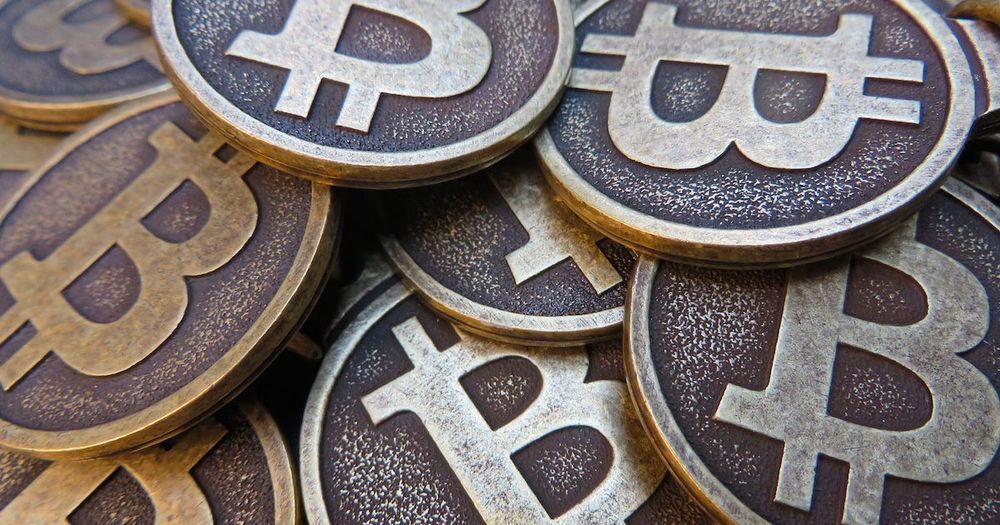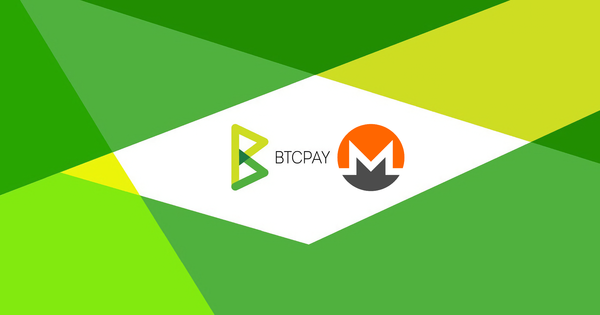What is Bitcoin?

Bitcoin, a decentralized cryptocurrency, was brought into existence by an enigmatic individual or group known as Satoshi Nakamoto in January 2009. Challenging the traditional financial system, it operates without the influence of any central authority or single entity, relying solely on mathematical algorithms and cryptographic techniques.
Bitcoin, as a technology, is based on a protocol that governs its creation and distribution of digital tokens. These tokens, referred to as bitcoins or BTC, are meticulously "stored" (referenced) within a public ledger renowned as the blockchain. By utilizing the blockchain, a network of computers across the globe verifies and records every transaction that occurs within the Bitcoin ecosystem.
The blockchain's distributed architecture ensures the utmost security and dependability of Bitcoin. Due to its decentralized nature, no single entity can manipulate or falsify the system easily. Instead, the collective efforts of numerous computers validating and storing transactions make it impervious to tampering or malicious activities.
We believe Bitcoin is popular not only because it has the network effect, but also because of its key features.
Permissionless
The decentralized nature of Bitcoin empowers individuals with full control over their financial activities, as it eliminates the need for intermediaries such as governments or traditional banks.
To enter the Bitcoin market, the process begins with downloading a digital wallet, a software application that allows users to securely store their bitcoins. This wallet generates a unique address for each user and provides access to their funds. Utilizing this wallet, individuals can easily send and receive bitcoins, making transactions directly with others in the network.
Being your own bank offers notable benefits. For example, transactions can occur without the need for an intermediary, reducing costs and eliminating delays often associated with traditional banking methods.
Moreover, the decentralized nature of Bitcoin ensures that users have full control over their funds, as the private keys to their wallet remain solely in their possession. This control mitigates the risk of frozen assets or account closures, which can sometimes occur when relying on a centralized bank or government.
However, alongside these advantages, being your own bank also entails added responsibilities. Users must diligently secure their private keys and manage them responsibly. Since there is no central authority to address issues or recover lost passwords, it is crucial to back up wallets and ensure robust security practices, such as two-factor authentication and encryption. By taking these precautions, individuals can safeguard their bitcoins and protect themselves from potential theft or loss.

Security
Bitcoin's blockchain is renowned for its unmatched security, which stems from a combination of robust cryptographic algorithms and the computational prowess of miners. By leveraging these elements, Bitcoin has created a network that is widely regarded as the most secure in the world.
The backbone of Bitcoin's security lies in its ingenious use of cryptographic techniques and math. All transactions within the Bitcoin network are protected by state-of-the-art encryption algorithms, which safeguard the integrity and authenticity of the data being transmitted. This cryptographic layer ensures that every transaction is tamper-proof and resistant to various forms of attacks.
Additionally, the computing power provided by the network's miners plays a pivotal role in enhancing its security. Bitcoin mining involves the process of validating and adding new transactions to the blockchain. Miners compete to solve complex mathematical puzzles, requiring substantial computational resources. The first miner to successfully solve the puzzle is rewarded with newly minted bitcoins, providing an incentive for miners to dedicate their computational power to the network.
The collective computing power of the Bitcoin network has grown exponentially over time, reflecting its increasing security. As of today (the end of 2016), the network's computational ability surpassed the combined power of the top 500 most potent computers worldwide by a staggering factor of 40,000(*).
This tremendous computing power ensures that the network remains highly resilient to attacks, making it extremely difficult for malicious actors to tamper with the blockchain.
Speed
When considering the time and process involved in online transactions with a Visa card versus Bitcoin, the differences are noticeable. Purchasing something online with a Visa card typically involves a verification process that can take up to a minute to ensure the accuracy of the card information. Furthermore, it may take several days to several months to confirm the transaction before it becomes irreversible.
Contrastingly, making a Bitcoin transaction is nearly instantaneous. With Bitcoin, it only takes a couple of seconds to sign a transaction using your private key. Afterward, the transaction is generally confirmed on the network within around 10 minutes.
Once a Bitcoin transaction is confirmed, it becomes increasingly difficult to reverse. Subsequent confirmations progressively strengthen the transaction's finality until it reaches a point where it becomes practically impossible to reverse, unless an individual possesses more than 50% of the network's hashing power.
Simplicity
The technology behind Bitcoin can indeed seem complex, but its core functionality can be easily understood. At its essence, Bitcoin utilizes wallet addresses, which serve as hashed public keys. To better comprehend this, think of these addresses as unique email addresses used for sending and receiving emails.
When you want to receive a Bitcoin payment, all you have to do is share your wallet address with the sender, just like providing someone with your email address to receive a message. By sharing your wallet address, you enable others to transfer Bitcoin to your account securely and seamlessly.
Likewise, when you want to make payments using Bitcoin, you can use the wallet addresses provided to you by others. This way, you can send funds directly to their intended destination. Similar to email, where you enter the recipient's email address to send a message, you simply input the recipient's wallet address to send Bitcoin.
The beauty of the system lies in its seamless nature. You don't need to worry about the intricate background processes involved in Bitcoin transactions. Your wallet and the larger network take care of all the necessary steps, such as verifying transactions and ensuring their security. This automated process removes the burden of understanding every technical detail, allowing you to focus on the simplicity of sending and receiving payments via wallet addresses.
So, while the technology underlying Bitcoin may be intricate, the way users interact with it can be likened to the exchange of email addresses, making it straightforward and user-friendly.
Relatively low cost
Using the Bitcoin network theoretically allows for free transactions, provided you are willing to wait indefinitely for your transaction to be processed. In this scenario, with unlimited time, there exists a chance that your transaction will eventually be confirmed without you having to pay any fees.
However, in practice, most users choose to attach a fee to their Bitcoin transactions to incentivize miners to expedite the process. Miners play a crucial role in confirming transactions and adding them to the blockchain, and they prioritize transactions with higher fees as it increases their economic benefits.
Currently, the fee range for most Bitcoin transactions typically falls between $0.05 and $1, regardless of the destination of your bitcoins. This means that whether you are transacting from Los Angeles to New York or from Germany to China, the fee remains consistent as long as the transactions size (in terms of bytes) stays small. This uniform fee structure is a significant advantage over traditional banking systems, where international transactions often incur higher costs due to currency conversions and other fees.
By offering a consistent fee structure, Bitcoin eliminates the complexities and additional costs commonly associated with cross-border transactions. This feature makes Bitcoin an attractive option for those who frequently engage in international commerce or remittance payments, as it provides a more streamlined and cost-effective alternative.
It's essential to note that fee structures may fluctuate depending on the overall demand and congestion within the Bitcoin network. During periods of increased activity, transaction fees might rise to ensure quicker processing times. Conversely, in times of lower network congestion, fees may decrease, allowing for more economical transactions.
Overall, while Bitcoin transactions can be processed for free given unlimited time, it is more common for users to attach a fee to incentivize miners. This fee is relatively stable, irrespective of the distance or destination of your bitcoins, offering a level of cost predictability that traditional banking systems often lack.
Privacy
Bitcoin transactions are indeed publicly recorded on the blockchain, which is a decentralized and transparent ledger accessible to anyone. However, maintaining your anonymity is possible due to the concept of pseudonymity. By default, your identity is not disclosed during a Bitcoin transaction.
The level of anonymity that you desire can be determined by your own actions and decisions. Although transactions are linked to specific addresses on the blockchain, these addresses do not reveal personal information unless voluntarily provided. Therefore, attaching your identity to a particular transaction solely rests in your control. Depending on your preferences, you can customize the degree of anonymity that you maintain within the Bitcoin network.
It is worth noting that while Bitcoin allows for pseudonymous transactions, achieving complete anonymity can be challenging. Additional measures may be necessary to enhance privacy, such as using Bitcoin anonymization services or employing techniques like coin-mixing and coin-joining. These methods can help obscure the trail of transactions and further dissociate one's identity from their Bitcoin activities.
Ultimately, the responsibility of maintaining anonymity when using Bitcoin lies with the user. By carefully managing the information shared and employing privacy-enhancing practices, individuals can enhance the level of anonymity they retain within the decentralized and inclusive nature of the Bitcoin ecosystem.
Sign up for our mailing list to be notified about new posts on Bitcoin and privacy.

How to safely backup your crypto savings
Never lose your coins to a hardware failure or thieves. Protect your bitcoin!
* the current computing power of top 500 computers is around 0.000422 ZFlops/s. The estimated computing power of the Bitcoin network is around 16.4 ZFlops/s which is around 3 886 156% more. Please note that it's impossible to get an exact number because Bitcoin doesn't work with floats.






